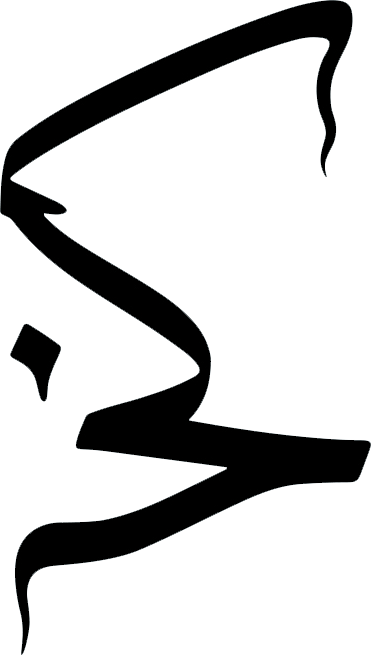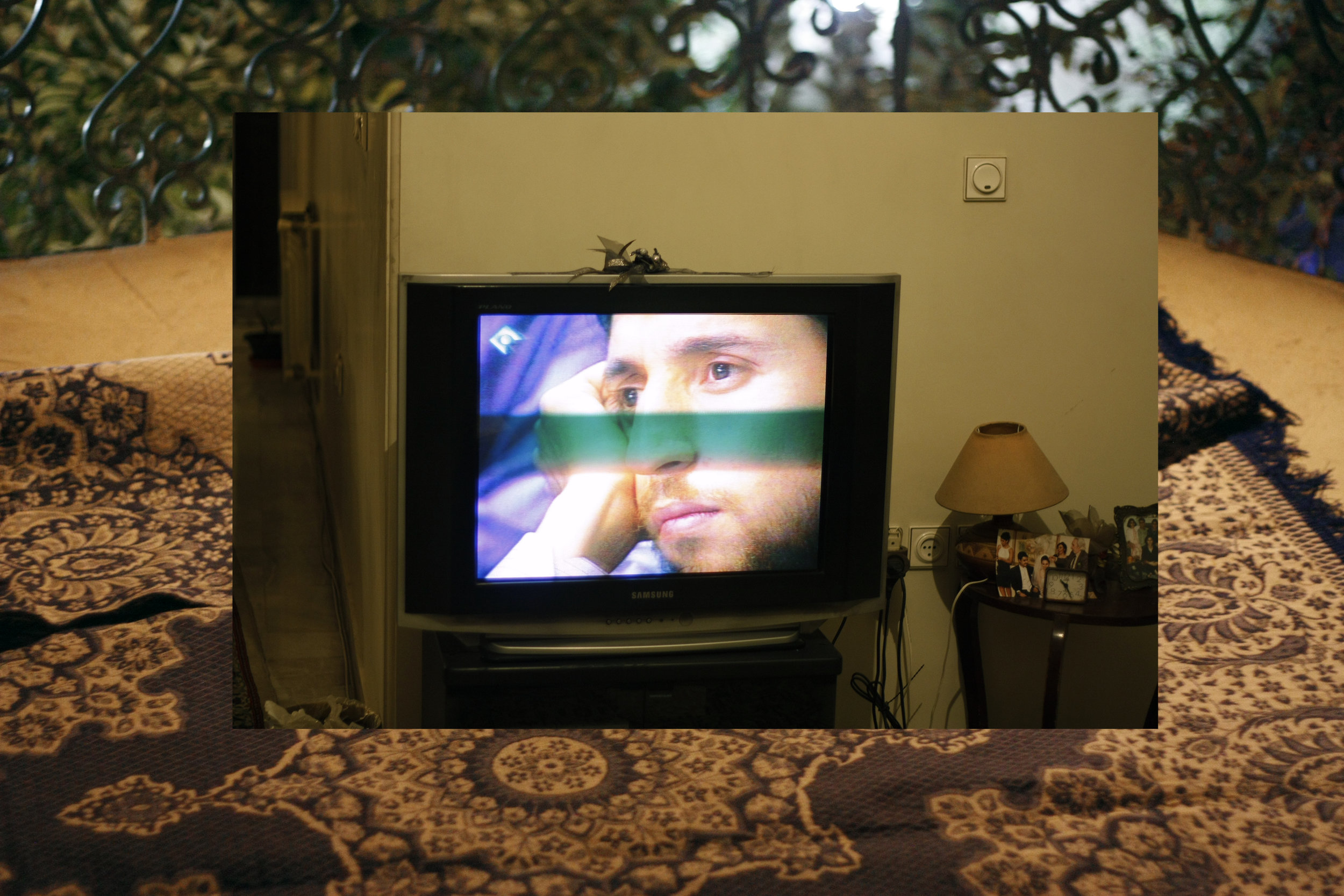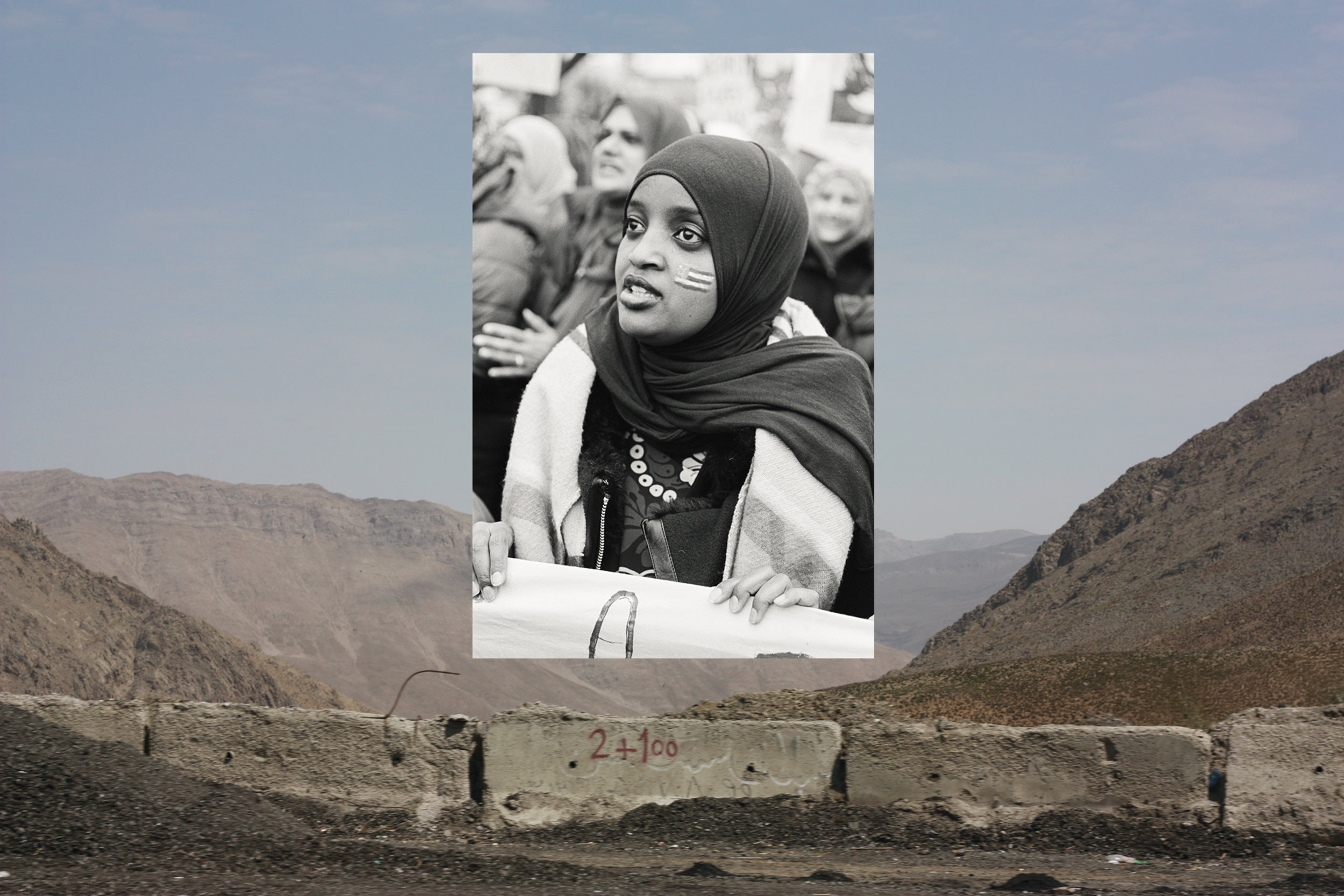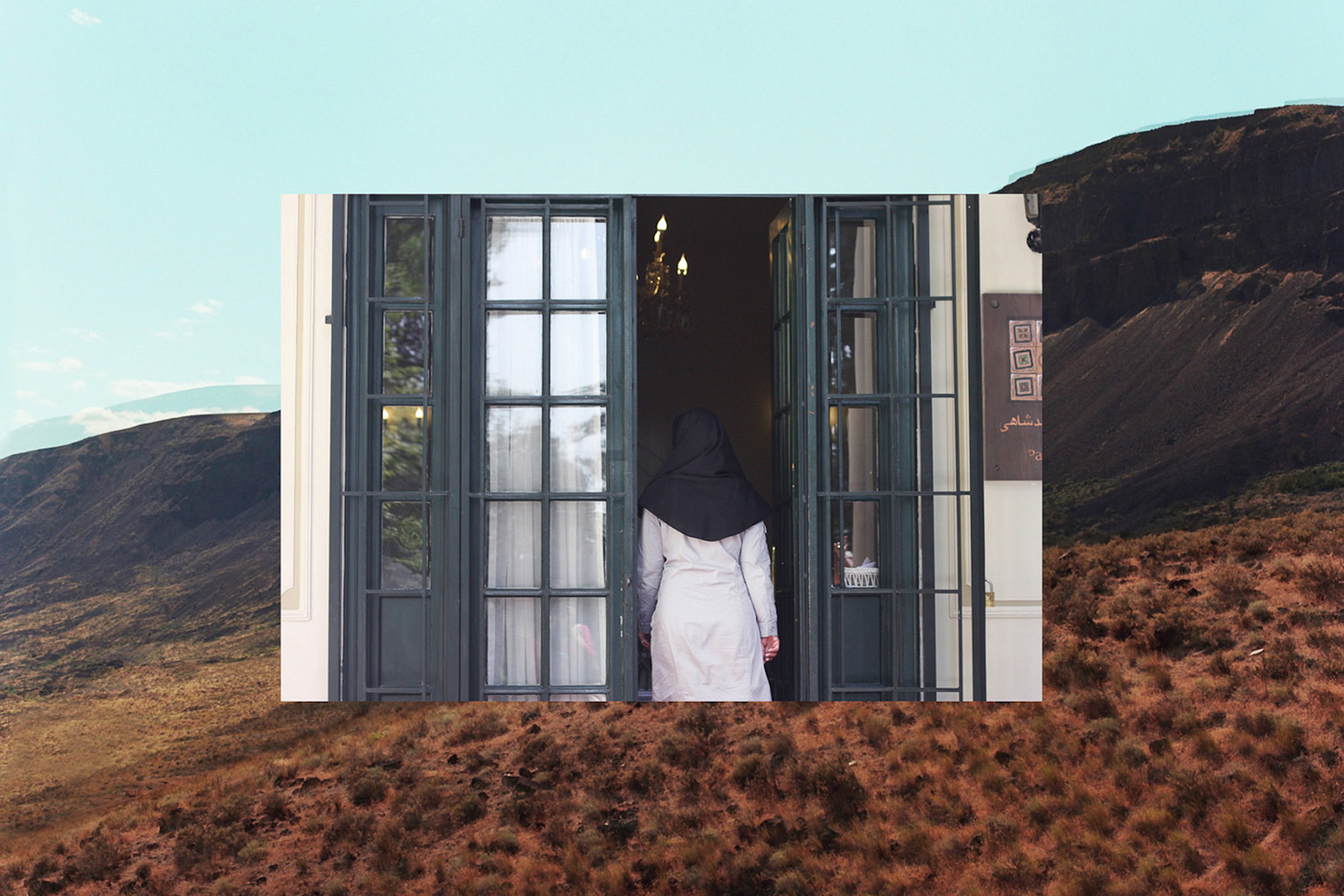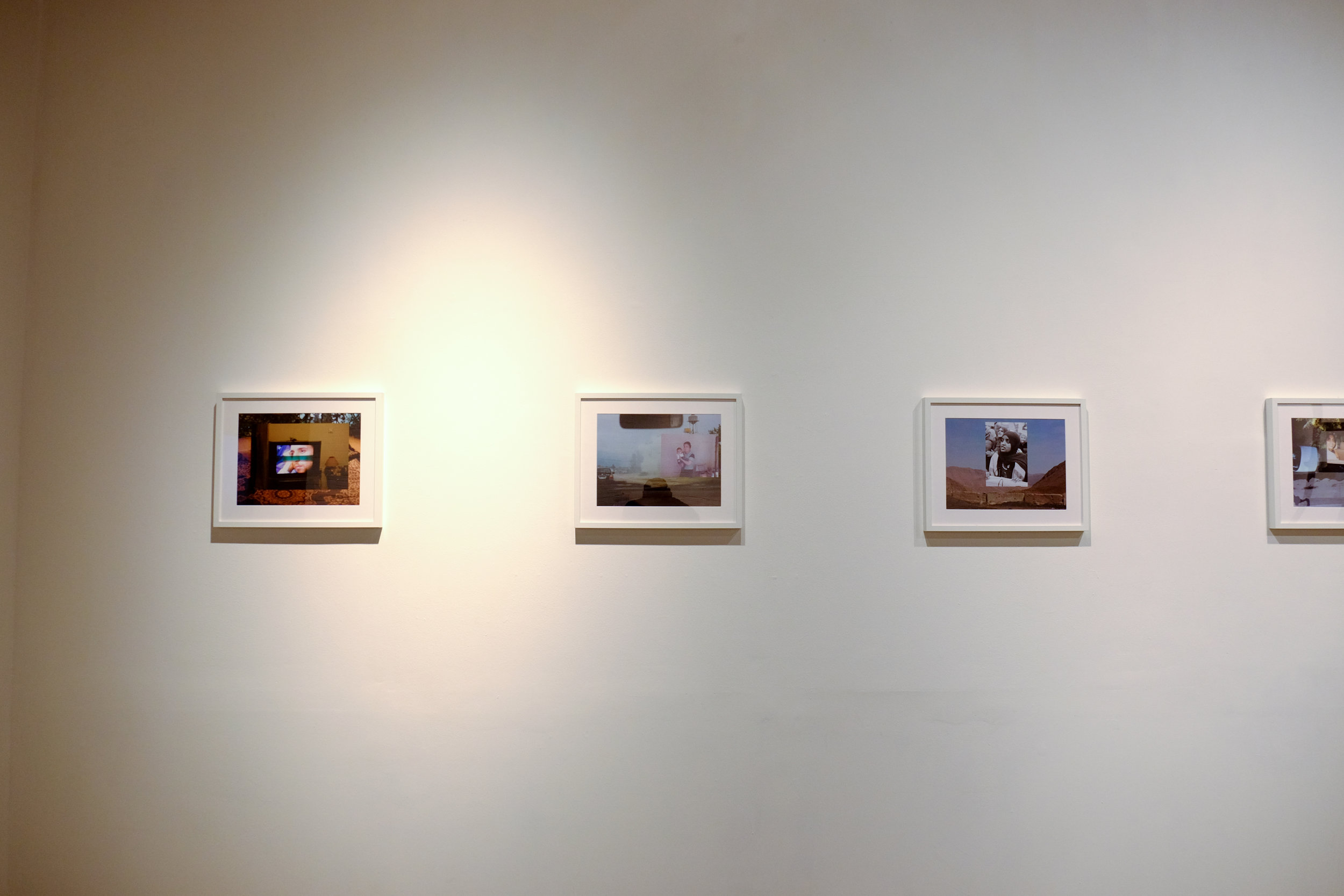Before We Were Banned: Interview with Carmen Daneshmandi
Carmen Daneshmandi. Photo by Jack Newton.
What does home mean to you?
Home to me means many things, I think of space and people and the need to feel nurtured and supported and contribute. For me, it should be a place where you can have something that is your own, and you can come to and remember you have the right to settle in your true self and grow. There should be respect and love. I think that can exist in the corner of a room, in the people you share space and food with, and in yourself wherever you go.
Where are you a local?
This is hard, because technically where I am a local (or I guess where I grew up and spent most of my years) doesn’t necessarily feel like home. That would be Seattle, Washington, or more specifically a suburb outside of the city called Bellevue. On the other hand, I feel more like a local when I go to visit my mom’s hometown in Sevilla, Spain because there’s more family history poured into different physical places there. That spot on the corner used to be Tita Antonia’s chocolateria for many years. Walking down the street and the local pharmacist still recognizes and calls my mom “Conchita.” Things change but people seem to maintain care and longevity, and by familial association, I feel I am a part of it when I am there. I have spent less time but feel more at home.
As wars have intensified in our home countries and the immigration system tightens in the US, what/who was the source of strength in your creative process?
The journey has been really confusing, intense, fragile, vulnerable, untethered. I am mixed Spanish-Iranian and throughout all my life I never really knew how to exist and felt I wasn’t allowed to fully express myself or have the feelings I did in regards to my “identity.” It’s been hard because I’ve never had any of my Iranian family around to sit me down and share with me who we are. To teach me about our family legacy and give me something first hand to take with me and be proud of when people make ignorant comments or make me feel like I’m some weird, lacking off-brand version of who I should be. My parents did the best they could, but they assimilated in many ways and wanted to protect my sister and me and at times downplayed what little outlet for our “identity” we had. I love them and know they’re proud of where they’re from, they’ve done so much to get our family the life we had, but ultimately they couldn’t understand what we were navigating emotionally, mentally. Even those who I had similar experiences to and connected with on some cultural level of being Iranian many times still made me feel limited and small.
I just never saw myself and I never saw my family so at a certain point you start to feel really helpless and like what you want to pass on is evaporating. My background is one I feel very deeply for but also feel at a loss with. Those feelings only saturate under the weight of these systems of racism/Islamophobia/hate crimes/keeping families apart. With the way things are happening and what representations we are given in exchange for the political events surrounding our home countries, it can be really hard to find that strength you need to exist and carry on. It may sound vague and longwinded, and a bit metaphorical the way I am describing it, but I really do believe if you don’t have a strong sense of community you start to lose yourself.
"Ultimately, a lot of what has given me my strength to make this work is looking at old family photos from Iran and Spain or any WhatsApp videos my dad sends me of my Baba Karim back in Tehran. I sit with these images of people I never really knew and their expression and imagine them rooting me on to represent them and my time and place in our family history right now; cheering me onward as in, “Don’t doubt your existence, or where you come from. You belong. Your lineage is powerful; you are valid”. That and just out of necessity—it’s simply something I feel I need to do to as a first-gen to preserve and pass on what we mean to ourselves and generations to come—I honestly hope it helps others who have felt the same way.
Did BWWB allow you to voice your narrative authentically?
Yes, definitely. I think just seeing something as simple as an open call to share work about something I had never seen asked for elsewhere but had been seeking for a really long time has been powerful. The curators Kiana & Mahya made it feel like a very easy, comfortable, and loving process. Everything from the way we emailed to what we would talk about during set up and take down made it feel that the work was one aspect of it but the people behind it were just as important. That felt really authentic and warm to me and made me feel like the work I was so scared to express was going to a good, safe place.
How did the event go and how did it feel to show your work?
The show went really well! This was my first art show ever in New York, and I don’t think it hit me until opening night just how much this show meant to a lot of people. I even sold a piece, which for me has never happened before. I did, however, have two very opposing feelings throughout the night. There were so many moments where the conversations I had or someone’s mere presence reminded me of family and made me feel really grateful. Seeing that engage with the work was powerful. We even had someone come in on the last day and ask to use one of the rooms for prayer. It made me feel a lot of love towards the spectrum of experience this show opened the discussion on.
At the same time, there was this moment opening night where I caught myself looking at people who were getting up close, specifically to the collage I did with my grandmother’s photo, and snap a photo on their phone. It’s normal; no one’s to blame, I chose to use that personal image and chose to put it on display to share with people. But at that moment, I just felt this deep sinking feeling, this immense guilt like I disrespectfully put my grandmother on display and I had never even met her. Like what would she think? I couldn’t stop thinking about it all night, and I got pretty emotional about it the day after. I think (I know) it has a lot to do with this weird feeling of permission and appropriation within myself because I never met many of my own family.
When I first asked my father, who is my Iranian side and is Muslim, about how to spell my grandmother’s name for the title of my collage he immediately asked what it was for and when I told him he really didn’t like the idea of me submitting to a show about the Muslim Ban. We got into a big fight about it and eventually, our compromise was that I would censor out any family names from any title. I think that had something to do with the guilt too. Like while I’m still expressing this work, parts of my own family were still feeling unsafe about that expression. Eventually, once they saw what the show actually was, my family became more comfortable and proud and helped to dispel that guilt, but those are things I still always think about.
What was the most meaningful comment you received or heard? And why?
Generally, it was just talking to the other artists and people who came to the show who opened up about how they too felt a lot of what we felt and that the show gave them something they had also needed for a long time. It goes back to that sense of community and visibility we all need to survive.
Did this event change the way you think about your identity? If so, how so?
While this show gave me a positive platform and a generous, loving sense of community and connection, I think its only starting to scratch the surface. I actually think this show made it that much more complex for me because now my feelings are finally coming out and I’m finally starting to make work about it. There’s a lot ahead of me I need to navigate but I’m excited to see what that looks like and how it heals.
Being an artist from the BWWB regions in the US can feel inherently politicized. Does this dynamic apply in your ‘home nation’? Do you hope to show your art in your home country/country of origin, or can it only exist outside of that space?
That’s a really good question, and I’m actually not sure I know the answer to that. I think it would be great to share this art in those countries of origin in conjunction with other artists similarly looking to make work to heal out there. Ideally, I think it would be a way to create global community and dialogue and exchange so that the work doesn’t just stay in a bubble. But at the same time we have the privilege of being able to mostly express these feelings safely so what’s the right way of doing that elsewhere where those spaces and resources aren’t as accessible or exist? And does my work only make sense and function when it’s being shown in the place it’s being physically experienced in real time (U.S.)? I wonder.
Did your art fit in with the larger themes of the exhibition?
I don’t necessarily see a separation in themes between the exhibition and myself; there were explorations of home, resilience/resistance, memory, history, and identity. My art fits into these larger themes because I think each part of those themes plays a function in my art making. I feel at home when I do the work; it’s my form of resilience. I call on images of family and memory to carve out my identity and to better form my history moving forward.
Art can be a vehicle to break down myths, like the “good immigrant myth.” What kind of discursive work does your art—on its own—aim to do?
Another good question! One for which I’m still trying to figure out. This is the first time I’ve made this level of personal work, so I think right now it’s aim is just to express its personal story and exist for a second. Making the collages and short film I didn’t have a discourse or myth to break in mind, it was more of an exercise, practice, a bit of a rite of passage of starting to visually break down my complex feelings and provide a more positive alternative to what it means (has been shown) to be Iranian. I guess, right now, where I’m at I want my work to at the very least allow others to see themselves and their experiences and know their feelings are valid - we’ll see where it goes from there.
Do these myths strain our communities?
These myths are super limiting and harmful—it’s controlling and damaging to a community to have to constantly prove their existence and seat at a table within a system that still doesn’t serve them or want them unless they can profit off of them. To have to work twice as hard to be seen, valued, and respected puts a toxic pressure and burden on these communities, while being slapped in the face all at the same time. It’s introducing a flawed value system on people’s lives, and essentially it’s a capitalist celebration at the reduction, suppression of how great these communities really are.
Time seems to me to be a central concept in the exhibit. Those in power abuse immigrants at their own leisure and based on their own inadequacies. The time of immigrants in the US is disposable. Did BWWB serve as a space for artists to reclaim that time?
I’m not sure that the time itself can ever be fully reclaimed. I think the space, however, can be and did get reclaimed and reenergized in some ways with BWWB. Up until this show, I didn’t really see anything specific to the healing and expression of the experience of Trump’s Muslim Ban, but I know its something a lot of people talked about and felt and needed. Having BWWB a year later almost felt more impactful in that way because it was long overdue.
Was BWWB a space for healing for immigrants under Trump’s administration? Can you imagine other similar spaces? How can we strengthen our sense of community and solidarity?
I think so, for sure. The BWWB show was just one aspect of it – the art, stories, and expression being shared with others. I think we can, and will, keep this going to become other spaces as well. I really want to see a space that can always exist and be readily available to these communities if they want someone to talk to and serve their mental health, somewhere private to pray, somewhere to share our food and music, somewhere to self-educate, somewhere to keep the dialogue going. It would be so great to have a place like what BWWB felt like, readily available, at all times. Sometimes I think there are community centers that can feel like cold institutions or some safe spaces that sometimes feel unwelcoming so outside of that (and the Internet) what else is there? I don’t want our community just to be people our age either. I think to strengthen our sense of community and solidarity it needs to be done so in person and cross-generationally and begin with people that really feel like family and have been there before us. And visibility, 100,000%. Communities need to see themselves to feel strong.
Carmen Daneshmandi is a photographer & visual artist based in New York by way of Seattle but also by way of Spain and Iran because that is her makeup. Driven by the texture of identity and the cultural backbone that holds you, her work spans to celebrate and carve out space and visual capital for people of color and the pulse of their evolving narratives across audio-visual vignettes, portraiture, and mixed media collage. As she questions these current representations, she uses powerful juxtapositions, identity through object, mental health, and abstractions of personal history to guide her.
